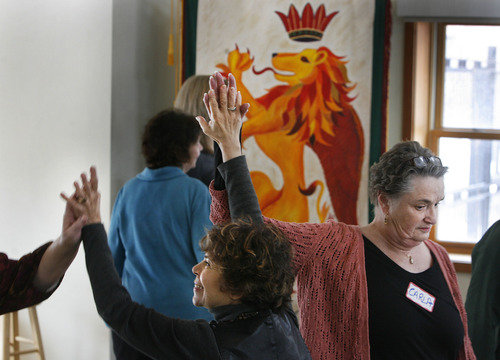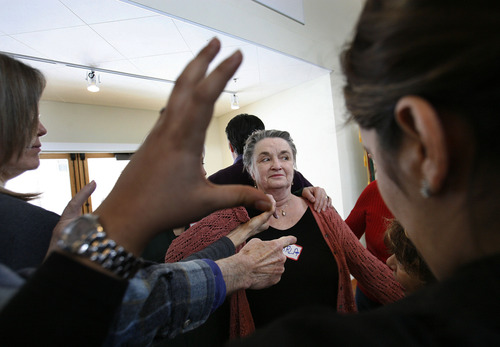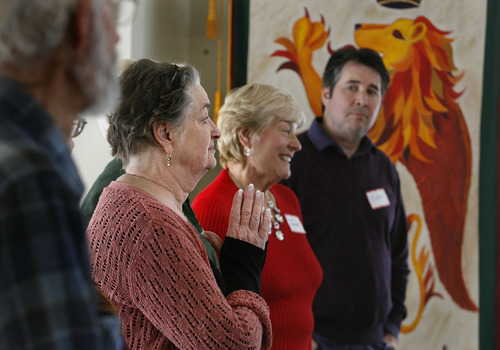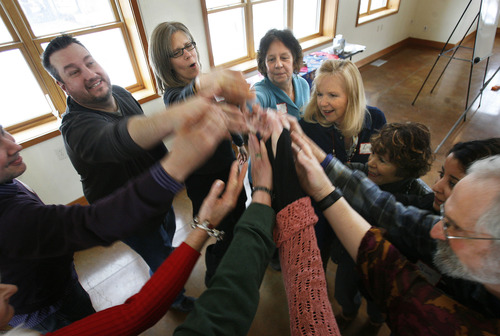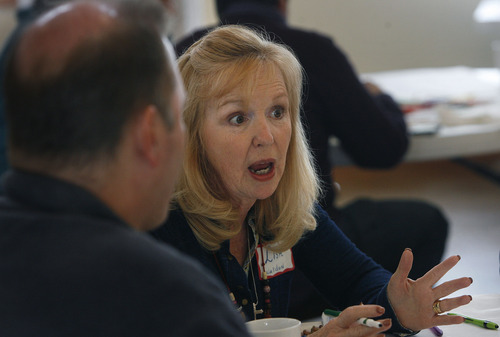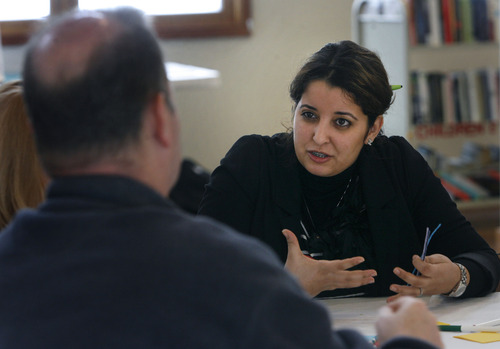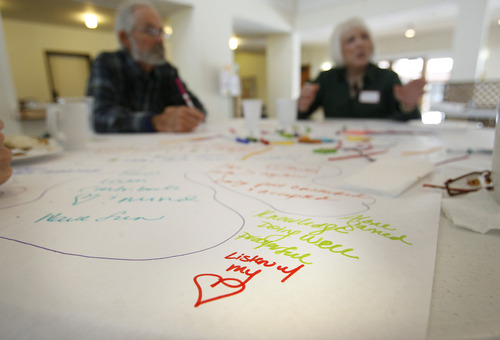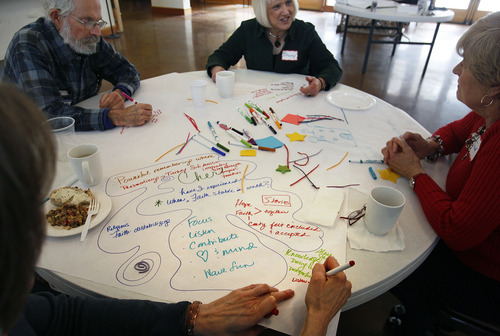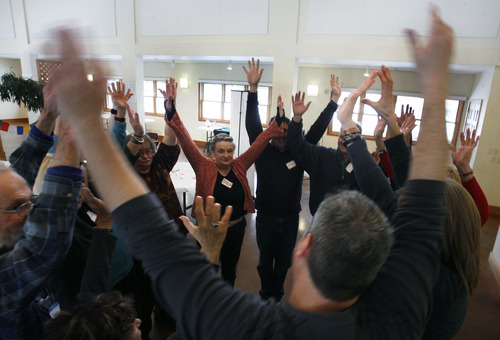This is an archived article that was published on sltrib.com in 2013, and information in the article may be outdated. It is provided only for personal research purposes and may not be reprinted.
A Mormon couple, an Episcopalian, a Baha'i, other Protestants, a religious seeker and others gathered on a snowy Saturday morning adjacent to St. Mark's Episcopal Cathedral in downtown Salt Lake City to learn how to transcend their differences.
The dozen participants at the four-hour Human Rights workshop, part of a monthlong celebration sponsored by the Salt Lake Interfaith Roundtable, explored questions of faith and hope, perceptions of themselves and others, and their thoughts about how to find common ground with those from different, even opposing, traditions.
Organizers Carla Kelley and Glen Brown led barrier-breaking exercises, including one in which the group formed two facing lines, then were told to pass the person opposite and first touch them on the elbow, next time on the nose, then for a third time pause to look in their eyes.
"It's a lot easier to touch elbows first than looking in their eyes, isn't it?" Kelley said. "But we really have to learn to see each other."
They formed a "human sculpture," each person making a gesture to express their feeling toward others.
Participants then sat at three round tables, sharing personal stories about when and where they felt most welcome in a community, including churches, and what that group did to make them feel included and loved.
Cher Langley said she has only been in Utah for 18 months but found a sense of at-homeness at Holladay United Church of Christ.
"I felt a good energy there," Langley said. "They listened with their hearts."
Kelley felt prompted to create the Human Rights Education Center of Utah a little more than a decade ago after the 1998 dragging death of a black man, James Byrd, in Texas and the murder of a gay student, followed by the Columbine massacre. The Utah mother felt she had to do something to help end bigotry and hostility to those who were different from the norm.
So Kelley, who has a gay son and grandson, hoped to get students, teachers, parents and neighbors talking about equality, diversity, anger management, forgiveness and respect.
"I wanted young people to understand the power of empathy," Kelley said. "And the power of conversations. We need to keep talking — even when it's tough."
At the Saturday workshop's conclusion, participants promised to be open to faith traditions outside their own, to work harder at not judging people based on race, religion or sexual orientation and to, as one man said, "become an active voice for good."
Then they linked arms in a circle and did a little joint boogy, laughing and hugging, as a final metaphor.
"I love growing, stretching experiences," said Stacey Lundgren, a Mormon on the Human Rights' board. "This was definitely worth it."


